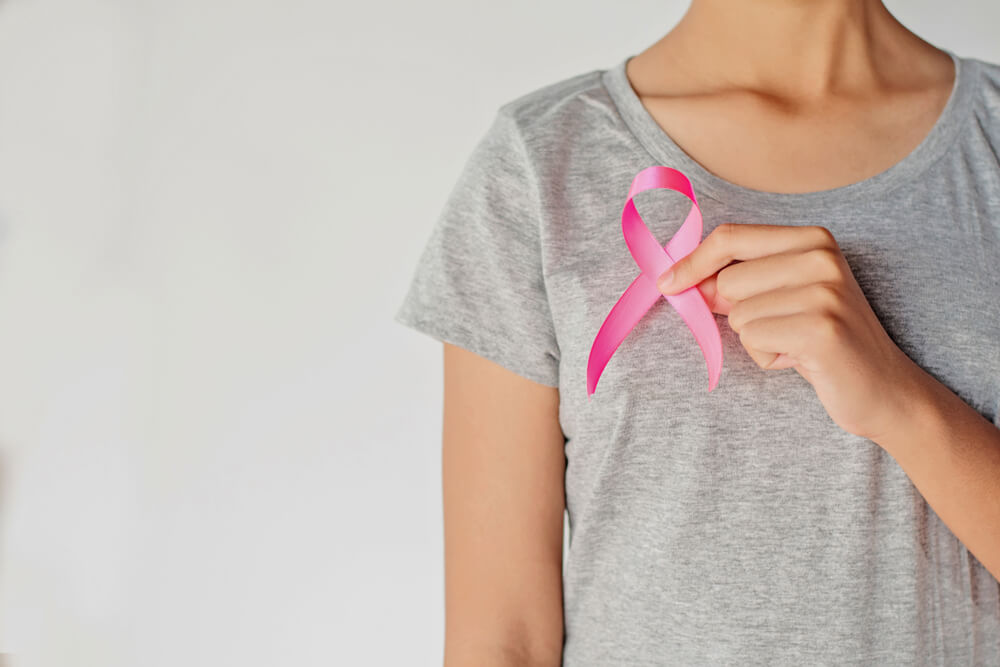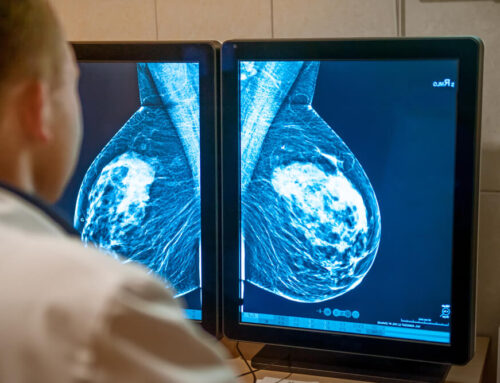A relatively rare type of breast cancer that tends to grow fast is inflammatory breast cancer or IBC. It warrants immediate medical treatment and manifests as breast infection, with symptoms such as swelling, redness, pain, one breast enlargement, orange peel skin, etc. The treatment often includes radiation, chemotherapy, as well as surgery. As mentioned, IBC breast cancer is rare, and experiencing some of the mentioned symptoms doesn’t have to mean the issue is this serious. However, if you notice anything strange and unusual with your breasts, we invite you for breast evaluation and treatment in Miami, FL; it’s always better to be safe than sorry.
What Is Inflammatory Breast Cancer?
As mentioned, inflammatory breast cancer is a rare type that spreads pretty fast but doesn’t typically have any accompanying bumps and lumps in the breasts. The main symptom of IBC breast cancer is the so-called IBC rash that turns the breast skin texture into one similar to orange peel. The breast affected by IBC breast cancer is often swollen and painful, with redness and dimpling.
When cancer cells cause the blockage inside the lymph vessels, making it impossible for lymph fluid to drain properly out of the breast, the inflammation occurs. The symptoms, including the breast cancer rash, can be mistaken for a mere infection. We at Breast Care Center Miami encourage you to attend regular doctor appointments as part of your routine health checkup so that anything potentially dangerous can be identified soon enough.
Even though it’s possible for anyone to get IBC, some factors increase the risk, such as:
- Gender; both genders can develop IBC, but those born biologically female are at a higher risk
- Age; in general, inflammatory breast cancer tends to affect the younger population, contrary to other types of breast cancer, most commonly those below the age of 40
- Race; people with naturally darker skin tone have a higher risk of developing IBC
- Weight; overweight and obese people are also at a higher risk of getting inflammatory breast cancer
The Signs and Symptoms of IBC

Since it typically doesn’t involve any lumps in the breast tissue, detecting IBC can be relatively difficult. As mentioned, the first signs of inflammatory breast cancer are similar to a breast infection, with swelling, pain, and redness. Of course, the inflammatory breast cancer rash is also present, but it can also be mistaken for something else.
The IBC rash and other symptoms are fast to progress – within the course of three to six weeks – and include:
- Changes in the breast skin texture such as pitting, dimpling, and thickening, so that it’s similar to orange peel
- Tenderness, pain, itchiness, and/or swelling in one breast
- Inflammatory breast cancer rash affecting a third of one breast or skin discoloration
- One breast enlargement often accompanied by a burning and heavy sensation
- A nipple that’s retracted/inverted, i.e., pointing inward
- Swollen lymph nodes under the arm or around the collarbone
The Cause of Inflammatory Breast Cancer
Inflammatory breast cancer is an invasive type of cancer that often spreads beyond milk ducts and attacks healthy tissue. IBC happens when the cancerous cells create a blockage inside the lymph vessels, making it impossible for the lymph fluid to drain properly. This is why the breasts turn red and swollen as if they were infected, often with a breast cancer rash. In general, IBC tends to spread from the lymph vessels where it metastasizes and then affects other organs.
Diagnosing Inflammatory Breast Cancer
In order to get diagnosed with IBC, the person will have to undergo a physical exam, imaging studies, and a biopsy.
During the physical exam, the lack of lumps may prove the diagnosis challenging, especially since the IBC rash and other symptoms are similar to mastitis. This is why imaging or mammogram is necessary to look closely inside the breast tissue and lymph nodes buy spotify plays. However, in order to be 100% sure about the diagnosis, a biopsy is the only foolproof option. The doctor will remove a tissue sample from the breast and analyze it in the lab. The biopsy can also identify whether certain drugs and therapies can detect cancer effectively.
Staging Inflammatory Breast Cancer
Once the biopsy is performed, the doctor can see whether the cancer has already spread outside the breast tissue. In that sense, when a person gets diagnosed with IBC, they can be in stage III or stage IV cancer. Stage III means that cancer only affects the breast tissue, while IV means it has already affected other organs. There are other tests to check further how far cancer has spread, such as CT scan, bone scan, MRI, and PET scan.
Inflammatory Breast Cancer Treatment

To treat inflammatory breast cancer, combining radiation, chemotherapy, and surgery is necessary. The first part of treatment involves chemotherapy, where chemo is injected into the body to shrink cancer cells. This will make the second part of the treatment easier, which is the surgical removal of cancer cells. The doctor will remove the affected breast and lymph nodes during the surgery. Radiation uses targeted energy to destroy cancer cells. It’s often necessary to get radiation after the surgery to eliminate potentially remaining cancer cells.
It’s also possible to get additional treatments such as immunotherapy, hormone therapy, or targeted therapy, which depends on the cancer cell characteristics discovered in the biopsy. In some cases, the doctor will also recommend participating in clinical trials where new cancer treatments are tested.
The Outlook for People with IBC
Once the person notices the breast cancer rash and generally spots that something’s wrong, and then goes to the doctor where they get diagnosed with IBC, cancer has already affected the breast tissue, which means that it’s definitely going to be a stage III cancer, if not worse. Unfortunately, IBC grows fast and is very aggressive. It can progress in just a couple of weeks. In the worst-case scenario, it has already spread to other organs. To make things even more unfortunate, IBC also tends to return after receiving treatment the first time around.
This is precisely why the outlook for people affected by this type of breast cancer is generally not so good. Of course, some people have lived for years after getting diagnosed with IBC, which is why it’s crucial to understand and follow everything the doctor tells you.
Now, not every rash is going to be an inflammatory breast cancer rash. As stated before, this type of cancer is very rare. However, it’s always best to rely on prevention. That said, don’t miss your wellness exams. Also, you can always reach out to us at Breast Care Center Miami if you have any questions or concerns about your health. We are proud to deliver top-notch care and medical service to our respected patients.






